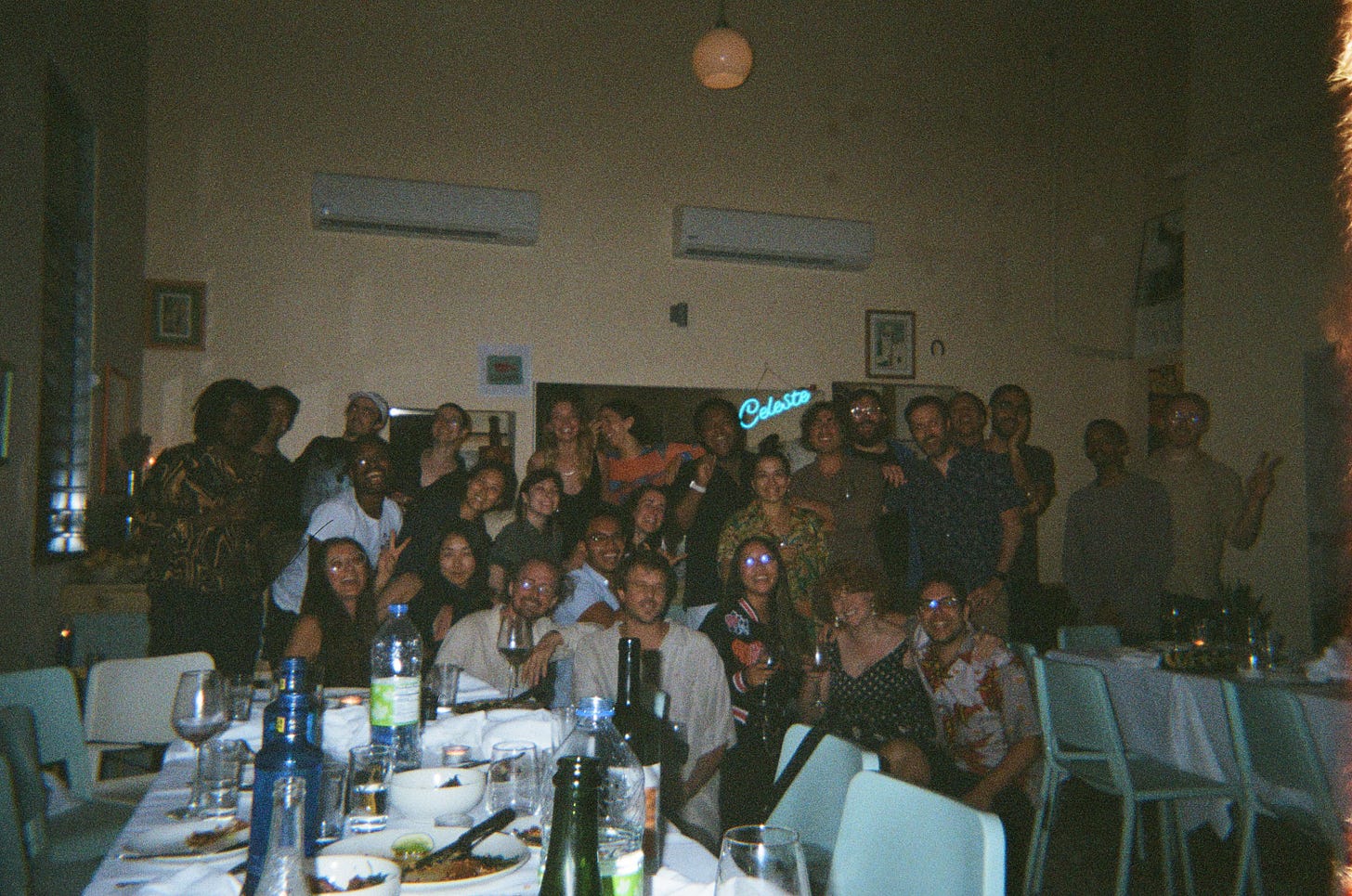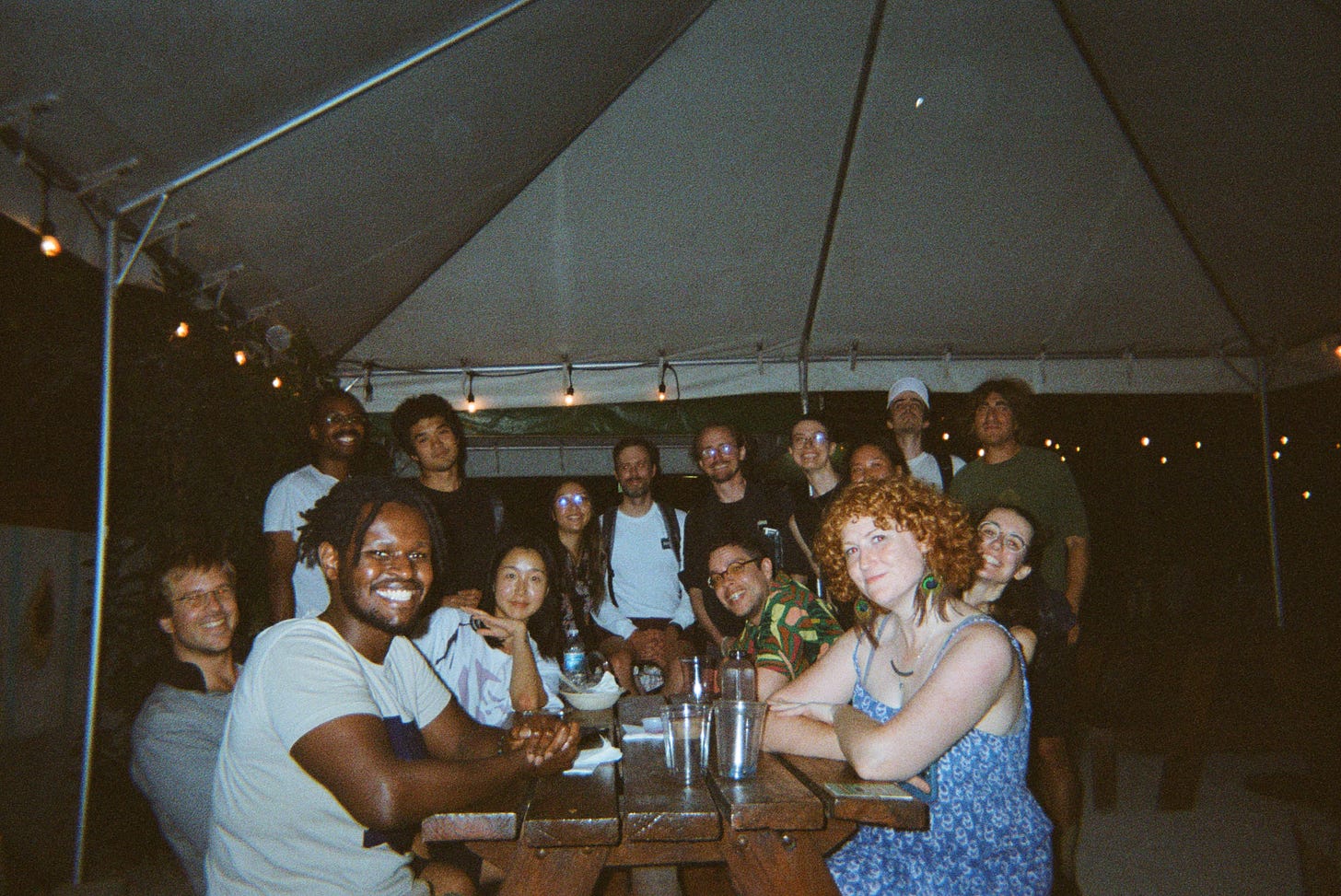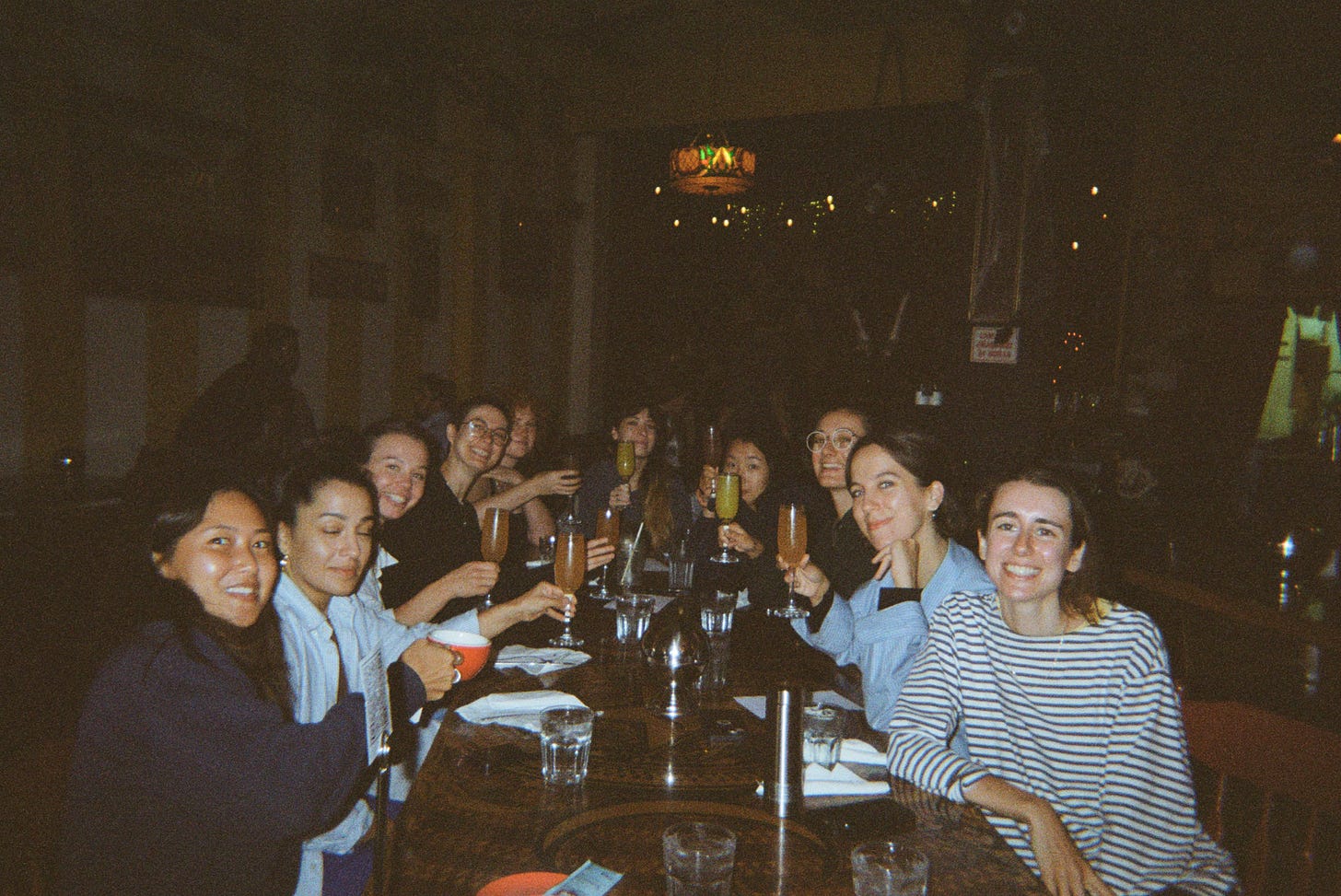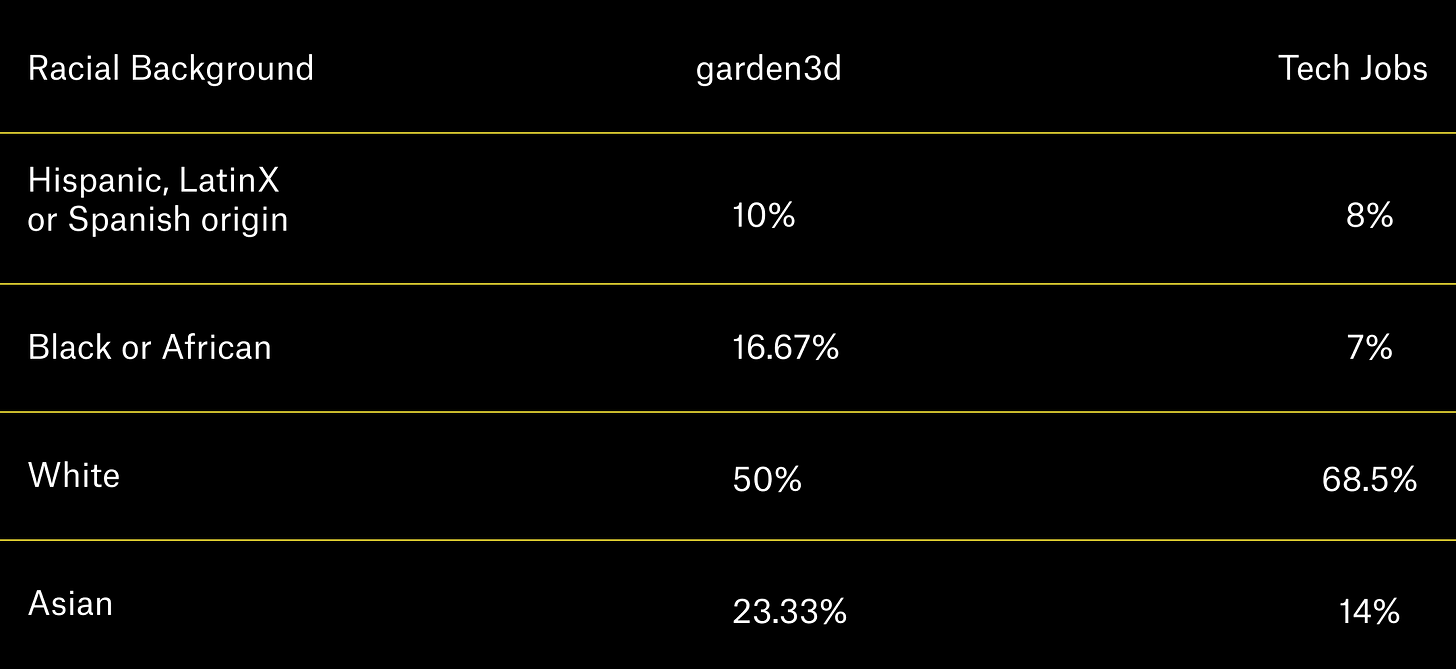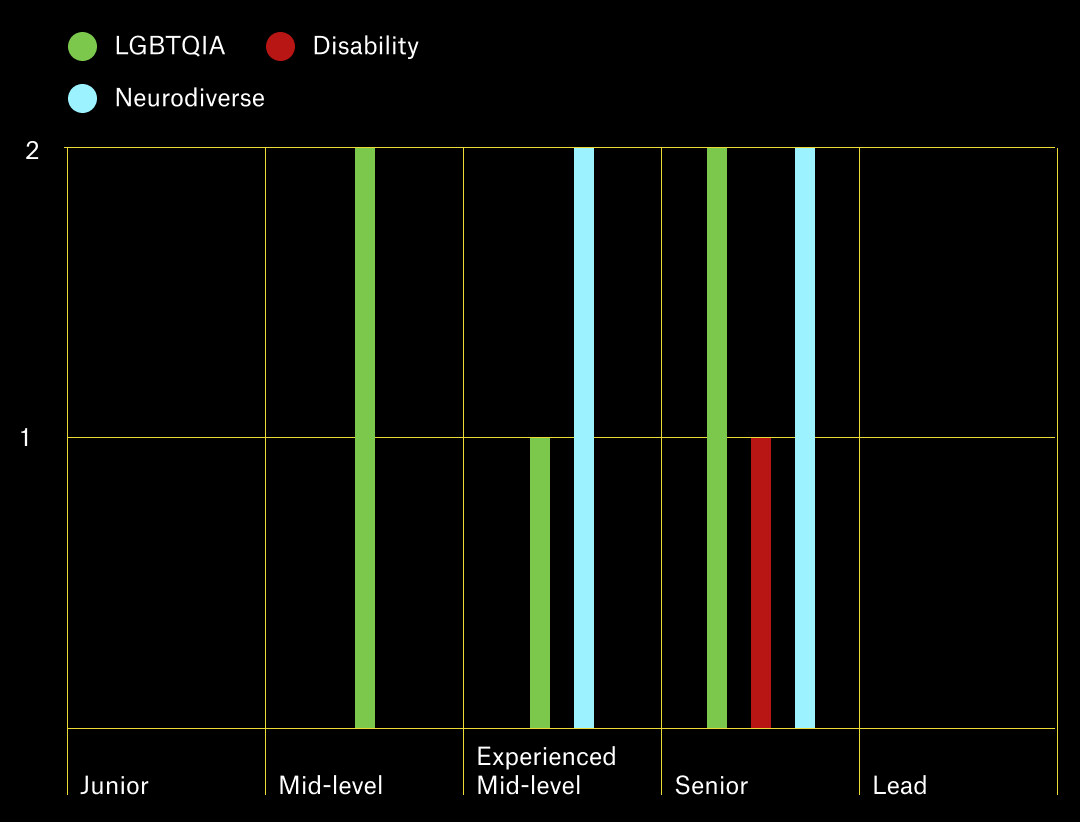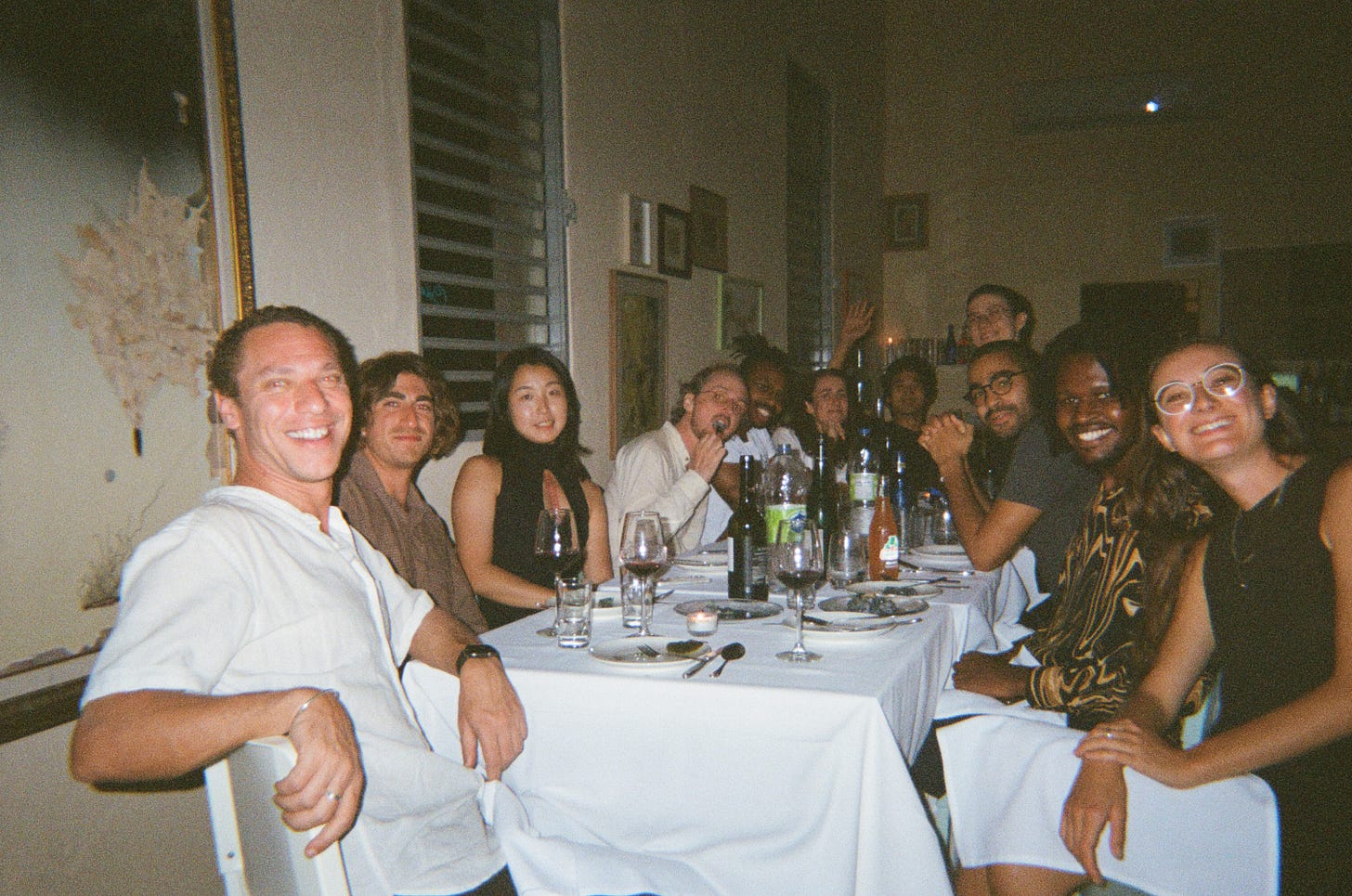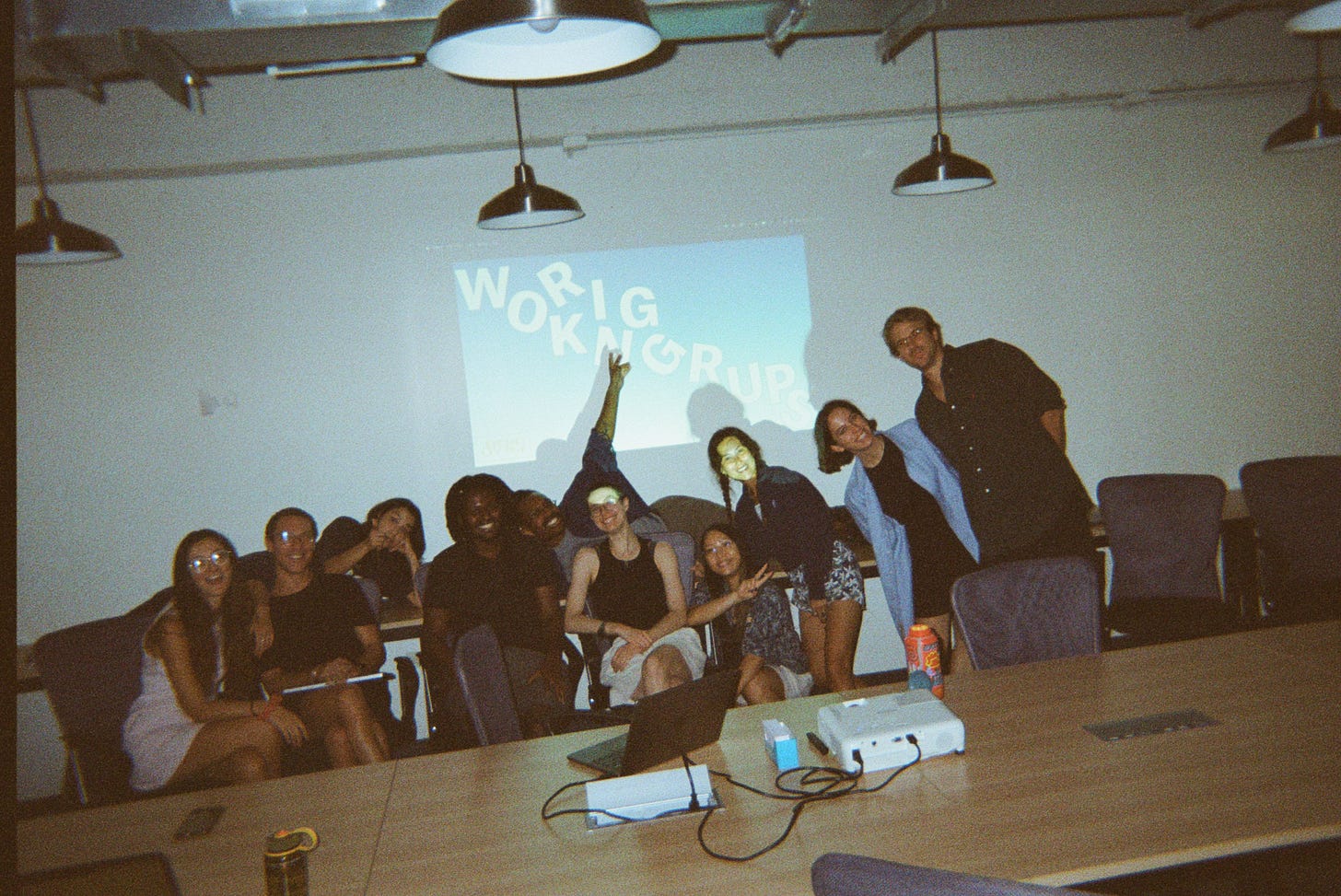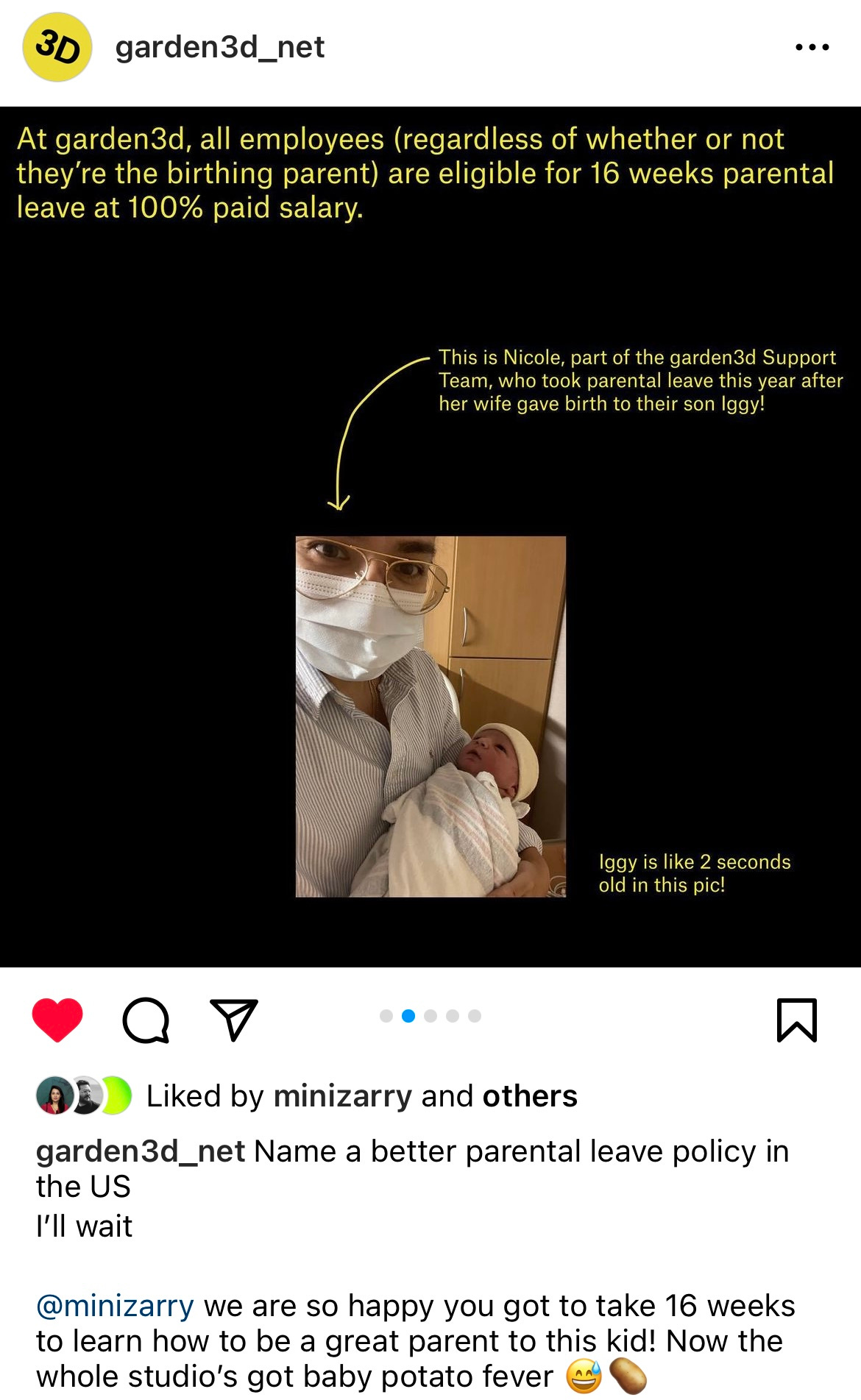Our collective of studios that make up garden3d is committed to releasing a Diversity, Equity, and Inclusion (DEI) report each year. By releasing this data, we can increase visibility across the studio, and actively make progress and meaningful change based on actual data.
Diversity, Equity, and Inclusion is defined as:
Diversity is the presence of differences within a given setting.
Equity is the process of ensuring that processes and programs are impartial, fair and provide equal possible outcomes for every individual.
Inclusion is the practice of ensuring that people feel a sense of belonging in the workplace.
(source: BuiltIn)
How we define DEI at garden3d
At garden3d, our DEI work is centered on creating a safe & equitable space that includes and encourages all people to be their true selves, rather than defining OKRs or meeting diversity quotas, as we do not want to encourage disingenuous or tokenizing behavior.
Our on-going effort focuses on enabling all humans who work here to have the same access to opportunity and success, by carefully creating conditions that empower them to do their best work, with an acute awareness that we don’t all start from the same place. We aim to build an environment that welcomes differences into all conversations, decisions and the overall shaping of our organization.
The work of DEI will never be done; rather, it is about continually shaping a fertile ground for diversity to flourish.
First up! What is garden3d? And why are we doing this?
garden3d is our umbrella company which consists of:
XXIX, our branding and design studio.
Manhattan Hydraulics, our product studio.
Sanctuary Computer, our development studio.
We also operate Index, our community center, and Seaborne, our sustainability consultancy.
Skill trees, salaries, and power dynamics
One of the most commonly recurring and universal notes about garden3d is that everyone who works here would like to see us continue working to create a more diverse workplace, and improve equity and equality across the workplace.
Everyone's salary at the company is determined and based on experience and skills using our skill tree. It is a system that allows employees to set their own salary through peer reviews, and new potential hires will use this system to offer back their salary during the hiring process. This is something we do to fight inherent bias and salary discrimination in the tech industry, and people tend to know their own skills a lot better than we do!
In the fall of 2021, everyone at the company anonymously gave consent to making their skill tree levels (and their corresponding salaries) transparent internally. When we create transparency around Skill Levels, and ask people to input their Gender Identities, Ethnicities, and the Communities that they're a part of, we're able to chart how well distributed our salary bands are against different groups. This helps our team work in public to set diversity goals, and work on improving them over time.
The result of providing salary transparency led to some hard, but important conversations. People were comparing themselves to their peers, and others reviewing the hierarchical distribution of race and gender across skill levels in the studio. It surfaced emotional reactions, and provided us with the foundation with which to have studio-wide conversations based on actual data. The feeling of being a studio where we are even able to have these hard conversations in the first place created a strong common feeling of gratefulness, and a readiness to do even better.
Whenever two humans are together, a power dynamic emerges. This is naturally true in the workplace; and when the underlying currents that cause those power dynamics aren't visible, we can't easily work to identify trends and improve them. This salary transparency change is intended to improve the ability for others to advocate for themselves, make informal power dynamics a bit easier to navigate, and allow us to create a better system of equality across the board.
The datazone
Disclaimer! In the following section, we will be presenting data on the identities and backgrounds of the people in the studio, and visualizing the data in graphs. At garden3d, we have a strong philosophy in avoiding tokenizing (or reactionary) behavior, and this data is in no way intended to be used to rigidly filter applicants, or fulfill hiring quotas. Rather, we collect and observe this data as one of many inputs, so to pick up on patterns over time that may tell a story, and ultimately help us understand our organization better. For instance, if we find a pattern in that specific gender identities, or skill levels, are leaving the company, we’re able to more easily identify the challenge, and work on a focused resolution.
The below data for garden3d was collected in September 2022. We'll review this data internally on a biannual basis, and release a yearly DEI report where we will review and check in on our goals and commitments, and surface any insights.
For context, we’re a studio of 30 full-time employees, making our data more sensitive: if one or two people leave the company, or we hire a new person, this has a significant effect on the percentage distribution across the board. This is still critical data to collect and check in on as we can consider and analyze trends over time that may tell us a more accurate story of what’s happening with our people.
It’s been challenging finding a benchmark with a progressive variety of categories within the tech industry to compare our internal data to. For instance, government databases such as The US Census Bureau and The US Bureau of Labor Statistics stick to two gender categories and one big bucket for all disabilities, without any further clarification. Our internal DEI data categorization is much more granular to better reflect our lived experiences. As such, we’ve relied on pulling data from multiple sources to provide better context to our workplace.
Gender Identity
The US consists of 51% females, and 49% males (US Census), and 25% of tech jobs are held by women, and 75% by men (Zippia). Comparatively, garden3d consists of 40% females, 50% males, 3.33% genderqueer/ fluid people, 10% nonbinary, 3.33% transgender, 20% cisgender, and 6.67% agender. We decided on these gender identity categories collaboratively, in order to ensure everyone felt adequately represented. People were also able to select more than one gender category to allow for further inclusivity, and to provide an additional level of anonymity. (This also lead to more inclusive UI, such as multi-select checkboxes instead of a single-select dropdown.)
We also have a working group called Gardenxrs for all gender-expansive people, transgender people, and allied cisgender women. It seeks to create a safer space to connect and surface any issues that may exist for those working in a male-dominated industry.
Gender Identity: The skill levels
Although women make up 57% of the workforce in the United States, only 26% of technology positions are held by women (Zippia).
Our internal data revealed that the majority of our most skilled (and highest paid) employees are white males. Additionally, the two leads at the company who identify as male and cisgender are the founders of respectively Sanctuary Computer, and XXIX. These employees have generally been working in the tech industry for a longer period of time, and when we first started the company, we prioritized hiring people early in their career. Our focus is now to ensure we have effective mentorship programs in place, upskill internally and hire from within the company. Additionally, due to our low turnover rate, we’ve been able to foster talent over the course of many years, growing our employees into true experts in their craft and taking on the most senior responsibilities on projects.
On average, women in the tech industry are offered a salary of 3% less than men for the same job, at the same company, even with the same experience (Zippia). Meanwhile, at garden3d, salaries are standardized for each skill level, which eliminates the possibility of any person being offered a higher salary for the same position and skill level. This process still isn’t perfect: it still relies on one’s ability to see themselves as worthy of such, which may present unique challenges for those that have been marginalized historically. However, this process seeks to distribute power and mitigate these historical imbalances, paving the way towards a more equitable industry.
Racial Background
People of Hispanic, LatinX and Spanish descent make up 8% of the tech industry. Black Americans occupy 7% of tech jobs, and Asian people occur 14% of tech jobs. Meanwhile, the rest of the industry is disproportionately occupied by white people, who take up 68.5% of tech jobs in the US (Zippia).
In comparison, garden3d consists of 10% of those with Hispanic, LatinX or Spanish origin, 16.67% of Black or African origin, 50% of white people, and 23% of Asian people. This implies that our workplace may reflect more diversity than the tech industry at large, though this diversity isn’t necessarily reflected in our most senior our skill bands—with more on this discrepancy in the following section.
We also have a working group for BIPOC folks, which is a safe space for folks who identify as Black, Indigenous, and/or a person of color. This was one of the groups who initiated the process towards making our skill level data transparent, which started this conversation in the first place!
Racial Background: The skill levels
In the United States, 83.3% of tech executives are white (Zippia). As mentioned, the two leads at the company are the founders of respectively Sanctuary Computer, and XXIX, and identify as white male and cisgender. When looking at the data at garden3d, there is a pattern of white (and male) employees dominating the higher skill levels at the company.
Our hiring pool lacked significant diversity when the company was first founded in 2015. The vast majority of applicants were white males. More recently, we have interviewed more diverse pools of junior candidates, and have shifted our focus to mentorship and growing our employees internally into higher positions.
Communities
At garden3d, 20% identify as LGBTQIA, 3.33% identify as having a disability, and 13.33% identify as neurodiverse, spread across Mid Levels to Seniors. We’re continually making improvements in order to best suit the needs of individuals from these communities — whether that’s feeling fatigue from video calls or highlighting that certain language or data sets could be more inclusive.
We’ve shared an anonymous survey with everyone at the company related to how we can better support people who identify as neurodiverse, and generally protect people from burnout (especially as we’re still a remote company). Based on the feedback we’ve received, we’re now working on developing a Communication Code of Conduct to establish meeting default norms, expectations when communicating async, implement policies to protect focus time, and more.
What have we accomplished so far?
This is the first year that we’re releasing a DEI report, but that doesn’t mean that we haven’t focused on DEI, and implemented policies to support significant progress since the company was founded in 2015. Some of the highlights throughout the years include:
Data
We made our skill levels and salaries transparent internally to the company!
We have implemented and are constantly working on developing features to our intranet, Stacks, so that our DEI data will bring new insights to life, and to make it easier to spot diversity problems in real-time.
Working Groups
We have formed studio-leadership-level working groups. In the DEI space, we currently have the following working groups:
🕵️♀️ the DEI working group to revisit our company policies across the board, identifying corner-cases that aren’t empowering for everyone equally, and fix them.
💙 the BIPOC group: a safe space for folks who identify as Black, Indigenous, and/or a person of color.
👩💻 the Gardenxrs group: a support group for all gender-expansive people, transgender people, and allied cisgender women. It's a safe-space to chat, explore and forge friendships, and to surface any issues that we might encounter working in an industry that has historically prioritized the needs and wants of cisgender men.
🌱 the Herb Garden: a group of people responsible for taking pulse of everyone's worklife balance & mental health at garden3d, and pushing forward initiatives to help improve those factors.
Workshops and Consultants
We are currently in the process of working with a third party DEI consultant, Affirma Consultancy, to audit and advise garden3d over a longer period of time.
We’re now using the BICEPS framework when designing new policy, to ensure we’re actively considering how that policy might affect everyone on the individual level.
The whole studio participated in a "Soft Power" workshop that explores how we can better notice and shift power dynamics at garden3d.
Hiring
We have added more inclusive language in our job postings encouraging individuals who are underrepresented in our industry to apply even if the title doesn’t mirror their current title.
For new potential hires, the initial interviews and the skill tree review during the interview process are now being conducted by a group of employees, and not by a single person in order to avoid subconscious biases.
We are actively attracting and sourcing folx in historically marginalized communities to increase their awareness of and access to job opportunities at garden3d
Policies
In 2021, we implemented our Parental Leave Policy, which means that all employees (regardless of gender) are eligible for 16 weeks parental leave at 100% paid salary. We currently have had two people use our parental leave!
We renamed our “Sick Day” PTO policy to be “Sick and Mental Health Day” PTO to encourage people to take the needed time to care for themselves.
We have floating holidays as we’re a company consisting of people from different countries and cultural backgrounds.
Our Code of Conduct policy describes a set of guidelines to ensure that behavior that harm is avoided, allowing garden3d contributors can feel safe in all of our physical and digital spaces.
Moving forward: commitments and goals
Even though we’ve made progress on the work so far, we still have plenty of work ahead of us! Below are some of our commitments and goals for the future.
Consultants & Working Group
Our high level goals with our third party DEI consultants are:
Improving interview and hiring process
Creating a safe space
Reducing biases when reviewing skill trees
Being aware of how soft power plays out in everyday communication
In our internal DEI working group, some of the initial initiatives that we’re focusing on are listed below. Some of the initiatives still needs further defining, but we believe this ambiguity is part of the process.
Populating a training manual for all skill bands and roles, and give direction on how to be assessed in the manual itself
Improve onboarding for new employees
Holistically improve career growth mobility through experience markers & peer-to-peer coaching guidance
Improving working conditions for employees outside of the US
Creating safer spaces to express concerns about uncomfortable situations, and ensure everyone’s ideas are being heard
Better supporting neurodivergence among gardens in our practices and structure
Build a DEI Hub into Notion to provide DEI resources to the entire group
Add guidance around reducing potential for tokenizing behavior
Creating a stronger culture of advocating for others
Holistically improve our entire company’s understanding to better support the unique needs of gardeners in marginalized groups
Improve garden3d as a group’s understanding of the nuances of people’s identity and how that factor into how we work
Improve the aggregate diversity of the candidate pool that our hiring pipeline attracts
Protect against the impact of individual bias in skill tree reviews
Data and Reporting
We will be reviewing our data internally on a quarterly basis, and check in on our progress with our commitments and goals.
We are committed to releasing a yearly DEI report and set goals publicly, and review last year's commitments and goals (2021 is our first one!)
Additional garden3D resources
If you're curious to learn more about garden3d, please feel free to check out:





